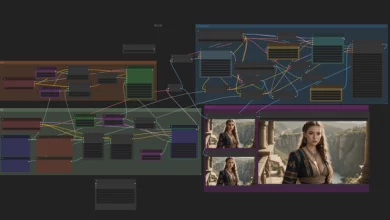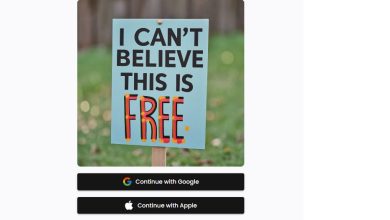
You have just got in time. Mobile applications are about to break their record of popularity. With Covid-19, we have seen some unexpected escalation in tech adaptation. Businesses are more than ever willing to make investments in creating their digital presence. And there is no better way than having a mobile application to reach your niche customers. It doesn’t matter if you have learned the easy way or hard way, it is crucial to gather as much knowledge about leading technologies and development practices as much as you can.
Talking of which, we are pretty sure you must have heard about native app development. But in time, many other development approaches have surfaced that are equally efficient to help your business expand. Cross-platform app development, for example, has helped businesses to reduce the development cost and develop one application that runs on different platforms. Flutter and PhoneGap both being popular cross-app development technologies, we would be discussing cross-platform app development in detail first.
Difference between cross and native App Development
Both native and cross-app development have their share of pros and cons. Depending on your requirements, business goals, objectives, budget etc. you must come to a decision. When it comes to applications, everything is essential. Right from time to market to app complexity, you cannot leave any stone unturned.
Usually, people think if they want a high-performance rich user experience, they should go for native app development. If they want to meet tight deadlines or have a limited budget, they should go for cross-platform app development. But no. Cross-platform app development has its advantages. Here are some.
-
Single Code
Cross-platform app development allows developers to create applications for multiple platforms while coding only one time. Flutter and PhoneGap developers can reuse the code to develop applications for iOS, Android, Windows etc.
-
Simplicity
Cross-platform app development allows developers to make changes or update the applications very quickly. They have to make the change one time, and it will be synced across all the devices, regardless of the platform.
-
Development cost
The biggest advantages of cross-platform app development are that you don’t have to hire a different team of developers for iOS and Android apps. It reduces the development cost approximately to half and allows you to reach your business goals cost-effectively.
-
Time to market
Native application development for multiple platforms can take a lot of time. Thus, you can go for cross-platform app development, which allows developers to develop applications using single code for different platforms. It cuts down the time for development significantly.
-
Hiring developers
When you are going for native app development, you would have to dig for specific languages. But with the cross, you won’t face that problem as it becomes easy to find experienced and proficient developers in widely used technologies such as JavaScript, CSS, HTML, etc.
Flutter Vs PhoneGap
The part that you have been waiting for, here we have mentioned some unique features of both the technologies after which we will go into comparison.
Flutter
Flutter is an open-source technology of Google that was founded in 2017. It is relatively new, but that has not stopped developers to leverage it in making Android and iOS apps with a single codebase. It is an object-oriented programming language and is based on Dart. Experts highly recommend using Flutter for minimum viable product development. From a rendering engine to ready-made widgets, command-line tools, testing and integration API’s it has everything you need to build a great cross-platform application.
Highlights
- High performance
- Uses Dart language which is a simple and effective language.
- It comes with ready-made and custom widgets for fast UI coding.
- It has a hot-reload function for real-time updates.
PhoneGap
PhoneGap is Cordova with additional Adobe features. It is an open-source framework, but some features of PhoneGap require you to pay. You can easily find an expert PhoneGap developer as it uses HTML, CSS and JavaScript, which are very common web technologies. Just like Flutter, it is too used for creating MVPs and simple projects with small budgets. It is one of the most reliable cross platforms. It is widely used for developing apps for Android, iOS, WebOS and other platforms.
Highlights
- The flexibility of using web technologies
- It has a robust backend support
- It gives better access to native APIs
- The UI libraries help in improving the user interface.
- It has a strong community base.
Flutter Vs PhoneGap: What should you use in 2021?
-
Component Library
Technology has evolved fast, and the arrival of hybrid cross-platform technologies has reduced the popularity of PhoneGap. Presently, PhoneGap is a tool that is more suitable for developing cross-platform mobile apps.
Meanwhile, Flutter is very much similar to react native and the components of flutter support iOS platform. This quality makes it very favourable for iOS, but when it comes to using it for creating apps for other platforms, you would need to make some changes.
-
Performance
PhoneGap uses Cordova to run JavaScript, and this makes it a medium performer. The use of web technologies as much as it is helpful can also negatively impact the app’s performance.
Flutter is a high-performing cross-platform framework and provides superior performance by skipping interactive bridges with native components.
-
User Interface
PhoneGap has improved its UI libraries by using HTML, CSS and Cordova. It has helped PhoneGap developers to create web pages and mobile apps that have a better user interface.
When it comes to UI, nothing beats Flutter. It provides the best UI for the apps developed under its framework.
-
Community
PhoneGap has strong community support, and this gives it a major benefit over Flutter. Flutter is very young, and it would take some time to become a popular tool in the mobile app development world.
-
Architecture
PhoneGap uses HTML, CSS and JavaScript for developing cross-platform apps. It is used for developing apps for all the popular mobile OS such as Android, iOS, Windows and more.
Flutter uses Dart Language for developing cross-platform applications. It is widely used for developing apps for Android, iOS and Google Fuchsia.
The Verdict
Flutter has some factors which make it a superior choice for cross-platform app development. But it is very new and having small community support is an unignorable disadvantage. Furthermore, it isn’t easy to find expert developers for Flutter development, but you can easily find experienced PhoneGap developers. Down the line, not many developers would be willing to learn Dart and PhoneGap allows developers to use web technologies to develop applications for all the popular platforms. In the end, it all comes down to your project needs to decide what would be a better framework for your app.
Author Bio –
Hermit Chawla is a MD at AIS Technolabs which is Web Design and Web development Company, helping global businesses to grow. He love to share his thoughts on hire a react developer.
For More:
LinkedIn: https://www.linkedin.com/company/ais-technolabs
Twitter:https://twitter.com/aistechnolabs
Facebook: https://www.facebook.com/aistechnolabs





